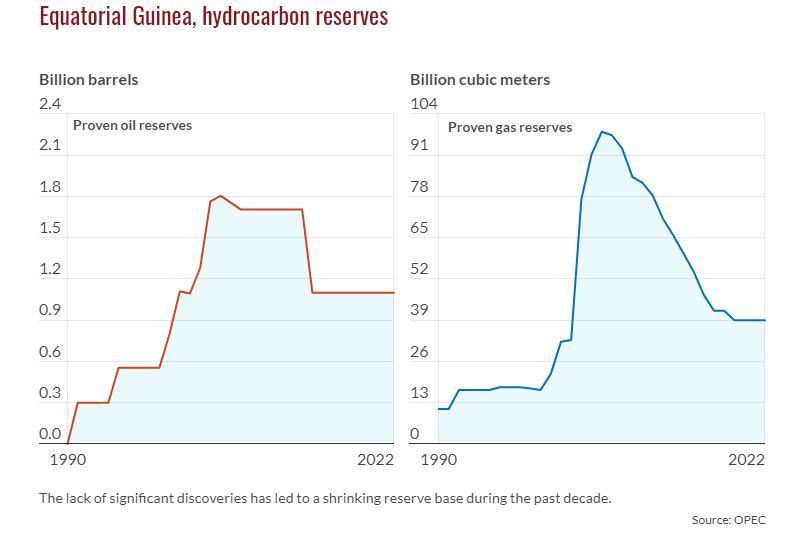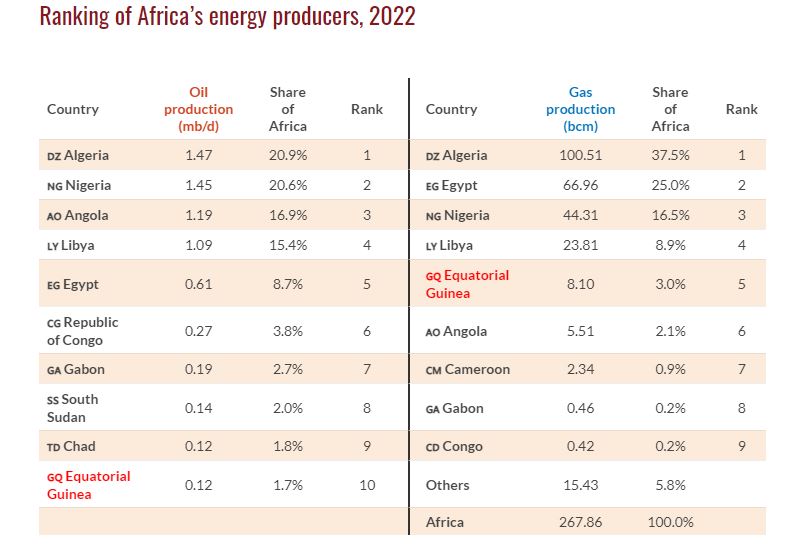[ad_1]
- In August, Abuja and Malabo agreed to develop the Gulf of Guinea Fuel Pipeline, an funding that’s poised to function a significant hyperlink between Nigeria’s fuel reserves and Equatorial Guinea’s fashionable processing crops.
- Nigeria’s deal provides to a different bilateral pact signed in March 2024 when Equatorial Guinea agreed with Cameroon to develop oil and fuel initiatives alongside their shared maritime border.
- In each circumstances, nevertheless, political stability, regulatory readability, and powerful institutional frameworks might be important in attracting traders.
In August, Nigeria and Equatorial Guinea signed a historic settlement to assemble the Gulf of Guinea Fuel Pipeline Venture. This bold pact will see fuel transported from the fuel fields of Nigeria to Equatorial Guinea, the place it will likely be processed on the latter’s state-of-the-art LNG amenities situated at Punta Europa on Bioko Island.
The deal, which was signed by presidents Teodoro Obiang Nguema Mbasogo of Equatorial Guinea and Bola Ahmed Tinubu of Nigeria, marks a pivotal second in shaping regional commerce cooperation, enhancing power safety, and driving financial improvement.
For many years, the Gulf of Guinea has been on the coronary heart of Africa’s power manufacturing, with each Nigeria and Equatorial Guinea taking part in pivotal roles. Nevertheless, this new settlement indicators a shift in the direction of deeper bilateral ties and a extra built-in method to power infrastructure, strategically positioning Equatorial Guinea as a pure fuel processing hub in West Africa.
The pipeline undertaking not solely goals to spice up the fuel processing capability of Equatorial Guinea, but additionally to supply a secure and dependable supply of fuel for energy technology and industrial use in West Africa.
“This settlement marks a major milestone in Equatorial Guinea’s GMH initiative, reinforcing our place as a regional chief in fuel monetization. By partnering with Nigeria on the Gulf of Guinea Fuel Pipeline, we’re not solely strengthening bilateral cooperation, but additionally regional collaboration to make sure a safe and dependable provide of fuel for our LNG facility at Punta Europa for years to come back. This undertaking will unlock immense financial worth for each our nations, driving sustainable improvement and power safety throughout the area,” acknowledged Antonio Oburu Ondo, Equatorial Guinea’s Minister of Mines and Hydrocarbons.
Strategic Significance of the Gulf of Guinea Pipeline
For Equatorial Guinea, these offers and investments are important in turning the tide for a rustic closely depending on hydrocarbons amid declining home manufacturing. Accessible knowledge exhibits that for the time being, Equatorial Guinea neither has important oil or fuel reserves. The nation’s confirmed oil reserves estimated at 1.1 billion barrels signify approxinately 0.07 per cent of the world’s complete and 0.9 p.c of Africa’s inventory, rating thirty seventh on the planet and ninth within the continent.
The Gulf of Guinea Fuel Pipeline is subsequently greater than only a transportation hall for this nation. It represents a strategic funding in the way forward for power throughout economies in West Africa to shore up the financial system. The pipeline will function a significant hyperlink between Nigeria’s plentiful fuel reserves and Equatorial Guinea’s superior processing amenities.
This partnership will go a great distance in addressing the continued problem of monetizing stranded fuel reserves in Nigeria, which have lengthy been underutilized attributable to a myriad of infrastructure constraints.
On the core of this initiative is the Punta Europa LNG processing facility. Commissioned in 2007 and operated by the state-owned EG LNG, this plant was initially developed to course of fuel from Equatorial Guinea’s Alba area. With pure declines in manufacturing, nevertheless, new sources of feedstock comparable to from Nigeria have turn out to be important.
In keeping with studies from the 2 nations, the Gulf of Guinea Pipeline will make sure that Punta Europa continues to function at full capability, processing fuel from Nigeria and different regional fields.
The deal additionally outlines plans for fuel gross sales to energy firms and industrial customers, guaranteeing that the advantages of this undertaking lengthen past the speedy companions. By offering a secure provide of fuel for electrical energy technology and industrial use, the undertaking will play a important position in supporting financial progress and enhancing power safety throughout West Africa.

A lift to regional collaboration
The signing of the Gulf of Guinea Fuel Pipeline settlement is the newest in a sequence of collaborative efforts between Equatorial Guinea and its neighbours because the nation of simply over 1.7 million individuals strategically positions itself to faucet from fuel billions.
In March this 12 months, Equatorial Guinea signed a bilateral commerce settlement with Cameroon to develop oil and fuel initiatives alongside their shared maritime borders. Particularly, this settlement centered on the joint improvement of transborder moist fuel fields between the 2 nations, together with the Yoyo and Yolanda fields, the Etinde fuel area, the Camen area, and the Diega area.
These partnerships are a part of a broader technique by Equatorial Guinea to strategically place itself as a regional power infrastructure hub. By leveraging its superior processing amenities and strategic location, policymakers in Malabo goal to spice up Equatorial Guinea’s manufacturing and export capability whereas fostering regional financial integration.
The Gulf of Guinea Pipeline, with its direct hyperlink to Nigeria’s huge fuel reserves, will additional consolidate Equatorial Guinea’s position as a key participant within the West African power sector. The pipeline won’t solely improve the nation’s skill to course of and export LNG but additionally create new alternatives for regional commerce and funding.
Learn additionally: Why Ghana’s oil and fuel sector is beckoning international traders
Challenges and alternatives
Whereas the Gulf of Guinea Fuel Pipeline presents important funding and revenue-earning alternatives, it additionally comes with a justifiable share of challenges. The development of the pipeline would require substantial funding and coordination between the 2 nations. Making certain the safety of the pipeline, which is able to traverse worldwide waters, might be a important concern, significantly in a area the place maritime safety is a persistent problem.
Furthermore, the success of the undertaking will depend upon the power of each Nigeria and Equatorial Guinea to take care of a secure and conducive enterprise setting. Political stability, regulatory readability, and powerful institutional frameworks might be important to attracting the required funding and guaranteeing the long-term viability of the pipeline.
Regardless of these challenges, the potential advantages of the Gulf of Guinea Fuel Pipeline are immense. For Nigeria, the undertaking affords an answer to the long-standing difficulty of stranded fuel reserves, offering a dependable outlet for its huge pure fuel sources. For Equatorial Guinea, the pipeline represents a chance to maximise the utilization of its LNG amenities and strengthen its place as a regional power hub.
Within the broader context, the undertaking aligns with the targets of the African Continental Free Commerce Space (AfCFTA), which seeks to advertise financial integration and cut back commerce boundaries throughout the continent. By facilitating the stream of power sources between Nigeria and Equatorial Guinea, the Gulf of Guinea Pipeline is poised to contribute to the event of a extra interconnected and resilient regional financial system.

[ad_2]





